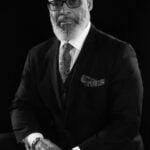In Part 1 of this topic, I left you with a self-reflection activity. It was based on the following theory: that our lack of collectivity, consistency and respect in our community for our identity has resulted in our valuing our other identities (e.g. political, religious, socioeconomic and so on) more than our community identity. As promised, I will begin to break down the rationale in support of this theory.
One of the roles that I serve in as an Indy Black Chamber of Commerce board member is as a cohost of a monthly podcast titled “Conversations with the Civic Engagement Committee,“ aired every first Thursday at 11 a.m. I share the host panel with fellow board members Whitley Yates and Thomas “Sparklesoxx“ Griffin. Our focus of theme currently is on the mindset of our community and how it is influencing our voting attitudes, behaviors and outcomes. We identified the following components that demonstrate we as a Black racial demographic place lower value in our community identity:
- Black community in-fighting between partisan preferences.
- The lack of collaboration between our organizational community representatives and city leaders.
- The lack of support in our own community for our “Black“ businesses with very limited economic exchange.
Let’s begin with component No. 1, partisan in-fighting in our community. In a study on systematic patterns regarding African Americans’ Republican Party identification titled “African Americans In The Republican Party: Taking The Road Less Traveled,” Dr. Phillip J. Ardoin of Appalachian State University asserts the following:
- As with the general population, they are more likely to be male, from the South and to identify themselves as conservatives.
- Unlike the general population, they are not more likely to maintain upper or middle incomes or to view religion as an important guide in their life.
- African Americans born after 1950 are more likely to identify themselves as Republican.
- African American Republicans feel less warmth toward Blacks than the majority of their brethren and are less likely to view race or social welfare issues as significant problems in America.
The theme in this pattern is that racial issues are still the key to understanding African American partisanship either Democrat or Republican. Dr. Ardoin asserts that African American Republicans will display lower levels of racial consciousness than African American Democrats, based on the findings of Tate (1993) and Dawson (1994), who found racial identification as a significant determinant of partisanship among African Americans.
Secondly, the research finds that most African Americans share the traditional Christian values espoused by the Republican Party; they are more likely to attend church, to oppose abortion and to support school prayer than whites. Considering these findings and the Republican Party’s consistent support of traditional Christian values, the research concludes that African American Republicans will view religion as a more important guide in their lives than African American Democrats.
Whitley Yates, who also is the director of diversity and engagement for the Indiana GOP, shared the following regarding her personal experience as a Conservative in a previous article on this subject matter:
“That particular political identity is almost always weaponized against us; it’s as if we’re committing treason. For example, I had the opportunity to speak in another state. When my title was read people immediately stopped seeing me for who I am; they began to see me for what they assumed my beliefs and values were.”
In our podcast, “Conversations with the Civic Engagement Committee,” we all agreed that this internal political discrimination of each other is detrimental to our collective political, social and economic survival in Indianapolis and beyond. We must have representation in all political parties. The idea that our interests are best served by having a single-party system will limit our opportunities to such a time when that party is in power.
What this research, in combination with the experiences of Ms. Yates’ and others like her, demonstrates is that political and religious identity bears more relevance and importance to us than our community identity.
In Part 3 of this topic, we will explore the pattern of individuality over collective action in our community.
George Middleton is a therapist and author promoting a series of works addressing race and mental health. For more information contact him at gmmusique@cs.com.







